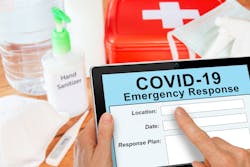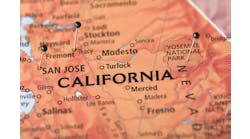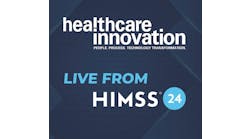Taking into account lessons learned from the COVID-19 response, a white paper produced by the Sequoia Project’s Emergency Preparedness Information Workgroup (EPIW) lists 17 recommendations to make information more readily available to support a more robust and coordinated response to future emergencies.
The workgroup, consisting of emergency preparedness, response, and public health experts, convened over several months to discuss gaps in current solutions. Among the recommendations are:
• Public health should consider using state and local health information exchanges in a more robust manner. This must include a bi-directional exchange of data in that public health must also share its data, within reason, with those entities with an emergency response role.
• Connect public health to national networks for data exchange such as eHealth Exchange and CommonWell Health Alliance. The EPIW also recommends that public health engage and leverage the new Trusted Exchange Framework and Common Agreement (TEFCA) data sharing ecosystem.
• Address policy confusion: Members of the EPIW noted that during the pandemic they had firsthand experience of confusion around policies pertaining to data and access to data. Navigating the consent and policy requirements around data sharing in the context of the pandemic, particularly with the added complexity of the new federal information blocking and Centers for Medicare and Medicaid Services (CMS) conditions of participation requirements, has created an effort-intensive and time- consuming policy and regulatory environment around data sharing. They recommend using resources to support clarifications since there is massive variability between states which makes collaboration on policy very difficult.
• Assess public health emergency response technology tools: The EPIW should create a Public Health Emergency Response Technology Tools Guide to assist state and local agencies with determining what is available and what to look for in terms of systems and tools when responding to an emergency.
• Share vaccination records bi-directionally: Even prior to the pandemic, immunization registries and systems were most often not a bi-directional connection. This means that some healthcare organizations do not have access to COVID-19 vaccination status data from state immunization registries. Encounter notification services, such as Admission, Discharge and Transfer (ADT) feeds and messaging, should assist with this where bi-directionality is not available. The workgroup recommends that states evaluate their immunizations systems to determine efforts to enable bi-directionality and implement accordingly.
“The COVID-19 pandemic brought circumstances that state and local public health agencies had to quickly act on. Everyone was forced to create a plan of action for a moving target; every day seemed to bring new and evolving information,” said Debbie Condrey, chief operations officer and chief information officer of The Sequoia Project as well as the EPIW facilitator, in a statement. “The workgroup developed clear, actionable recommendations that address policy and regulatory issues, resources, equity, and more. For future emergencies, we are all better ready to react quickly.”
The workgroup consists of members who deliver emergency response services directly to citizens in states and localities, as well as representatives from federal agencies.
The EPIW included participation from the various groups involved in emergency public health response to ensure the recommendations were fair and inclusive. “The wealth of the workgroup’s on-the-ground experience is invaluable as we look ahead to the next public health emergency,” said Nora Belcher, executive director of Texas eHealth Alliance and EPIW chair, in a statement. “With the Sequoia Project’s support, we’ve built a community of practice for experts to share, learn, and motivate as we move this whitepaper from research to action.”
EPIW 2022 goals include:
• Adding additional public health emergency response stakeholders to EPIW membership
• Prioritizing recommendations and acting on, as appropriate, recommendations made by the group
• Continuing to provide a community of practice forum where members may openly discuss challenges surrounding emergency response
EPIW launched in 2021 as part of the Sequoia Project’s Interoperability Matters cooperative, which engages experts from across the healthcare and healthcare IT communities to identify, prioritize, and collaborate on the most pressing, discrete challenges to nationwide health information sharing.


